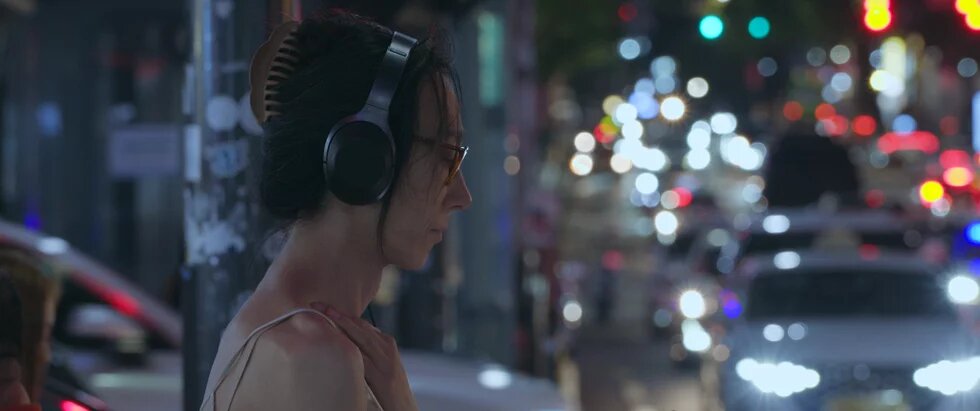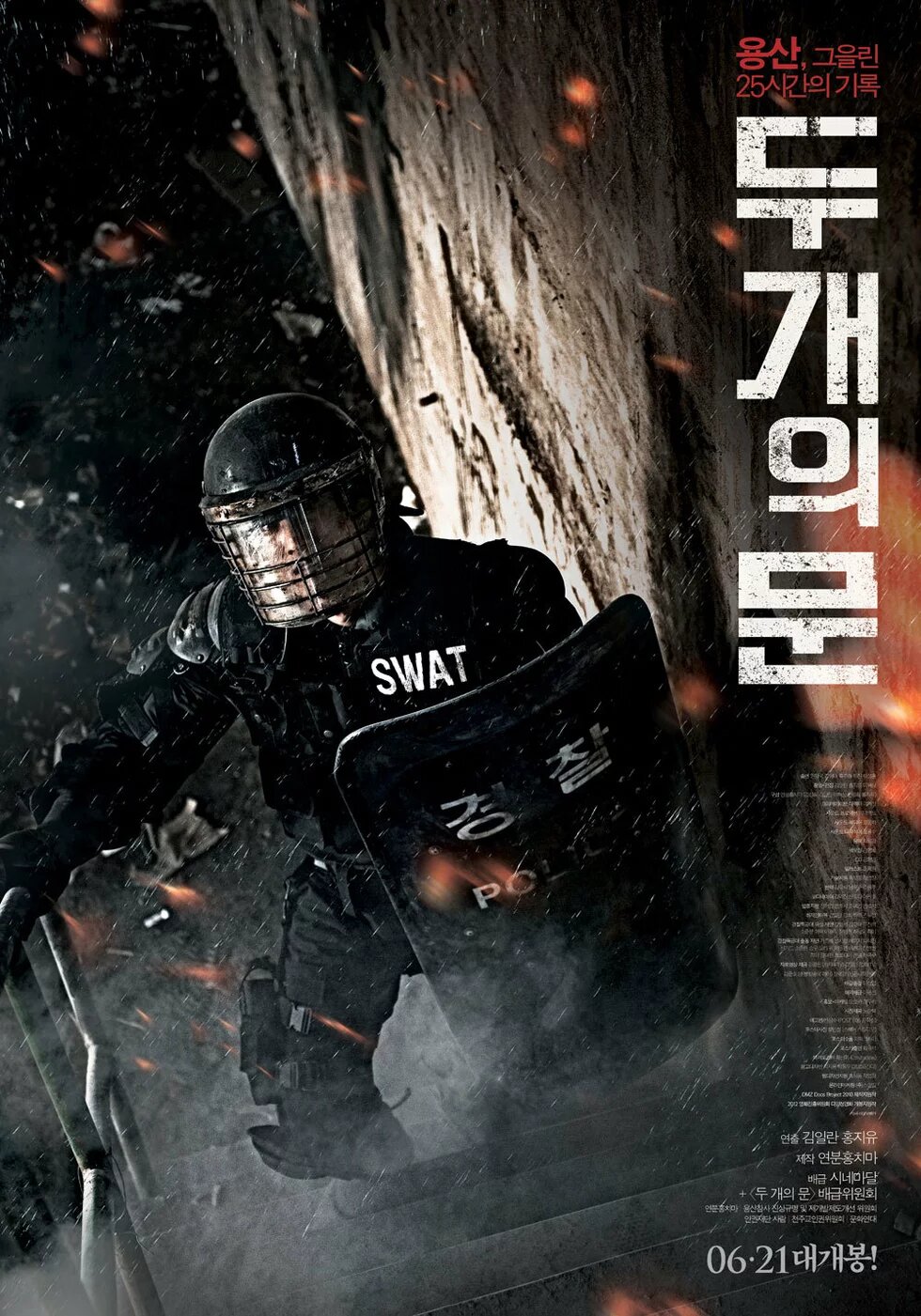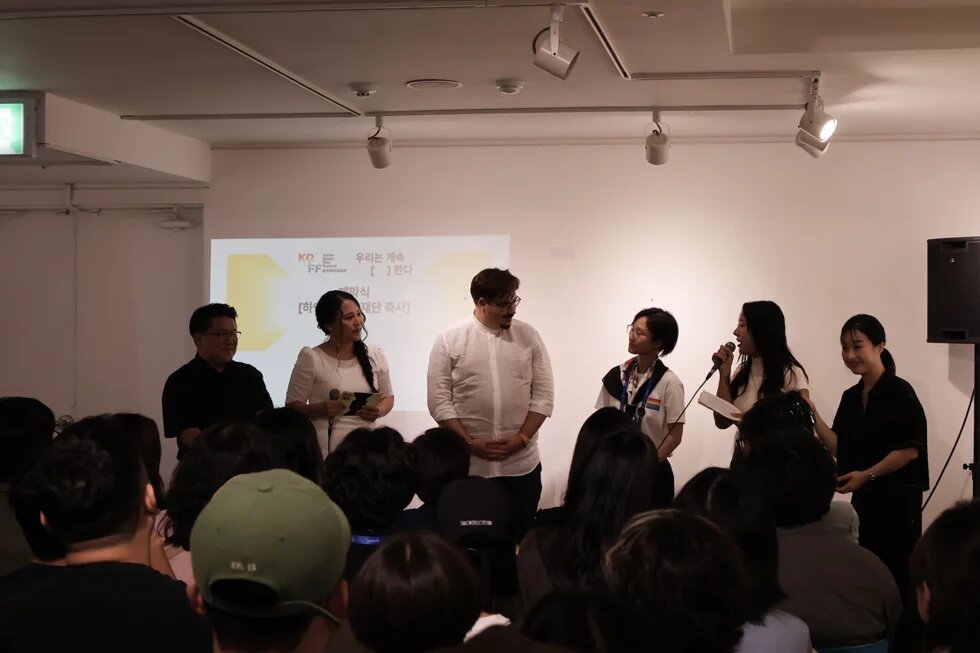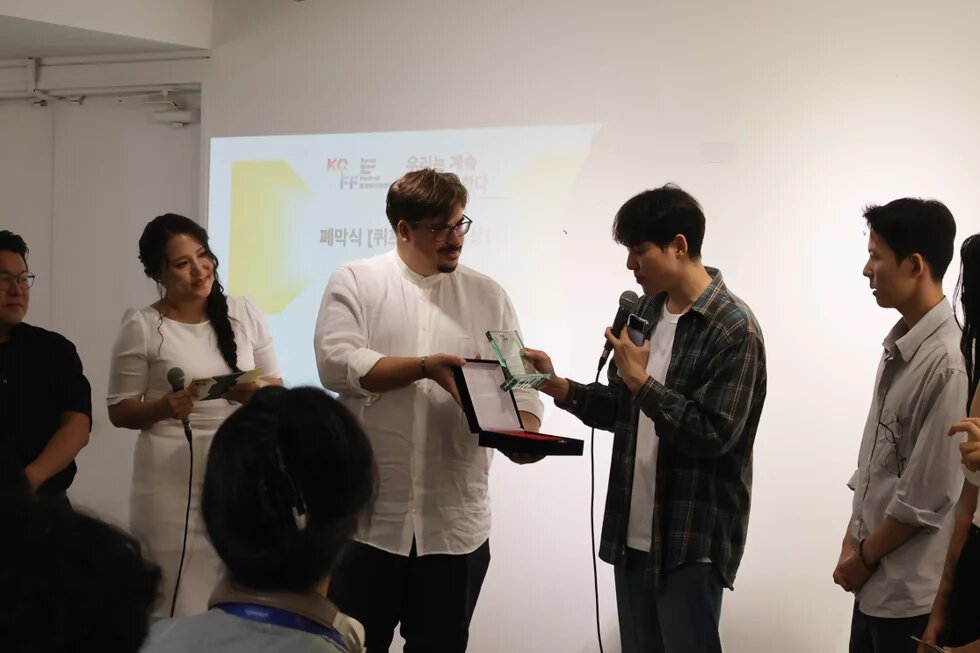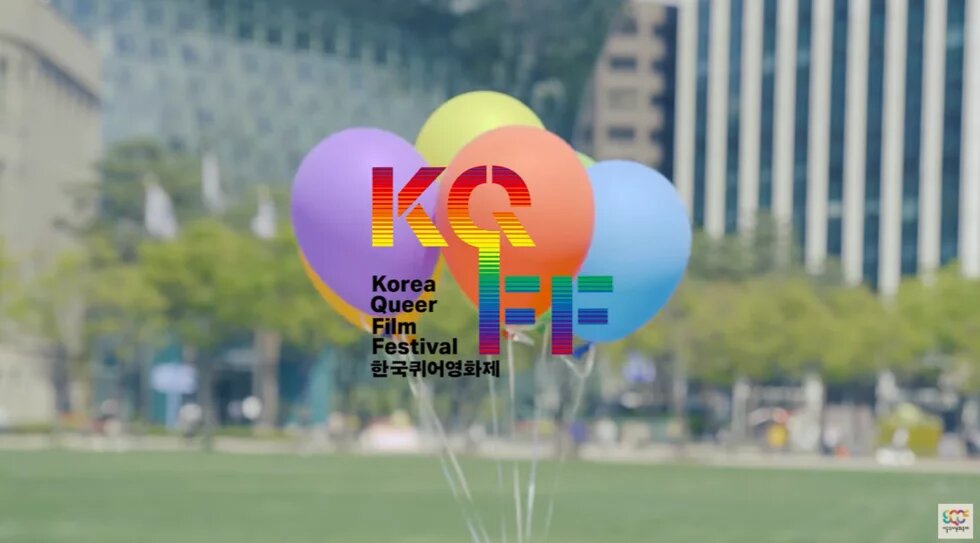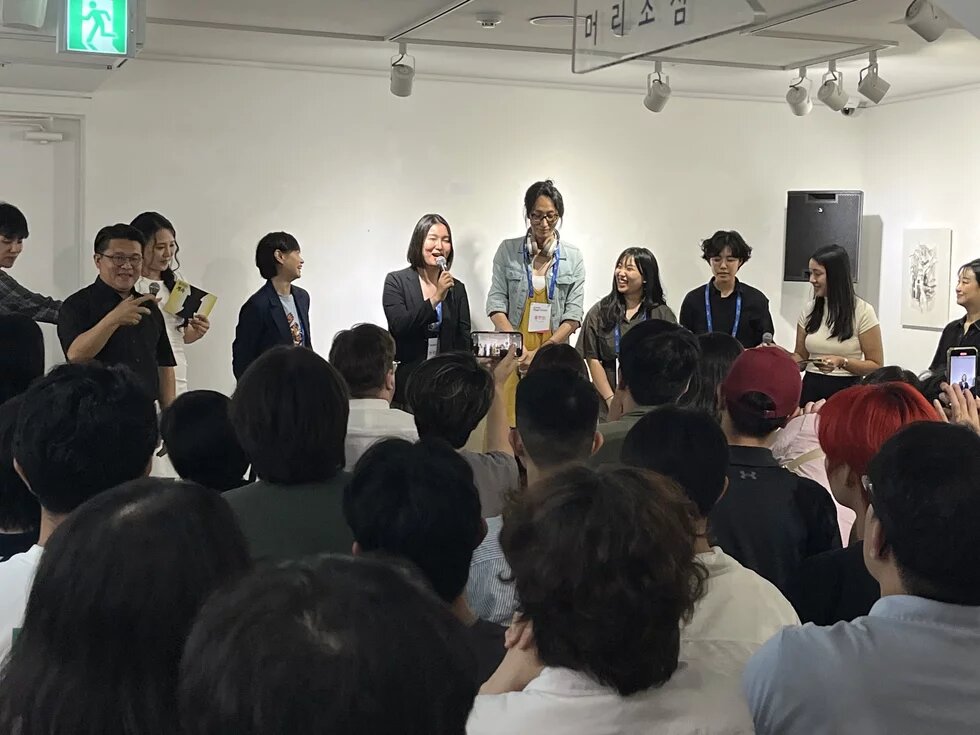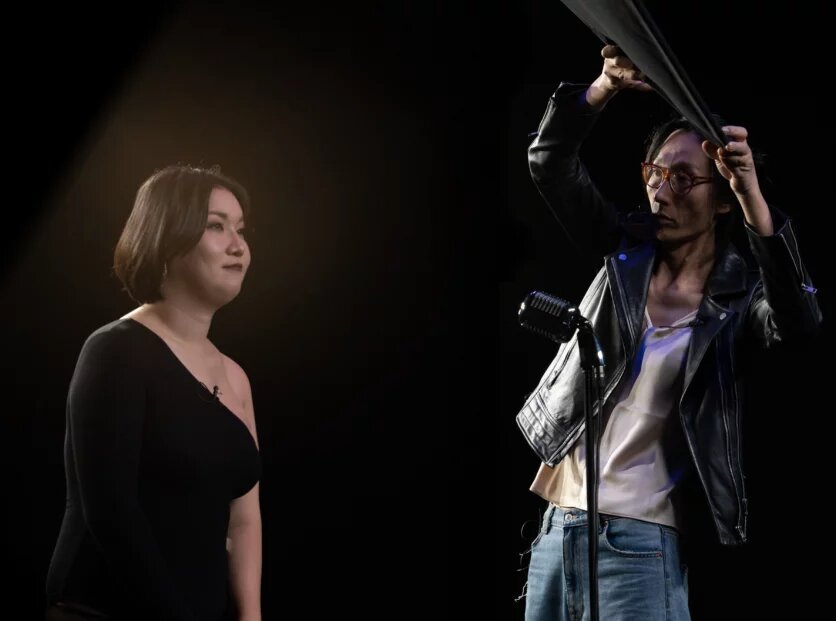
The documentary 'Edhi Alice: REVERSE', which intimately follows the lives of two transgender individuals, moves beyond questions of identity to become a cinematic act of sensing and witnessing existence itself. In a society where even its screening was rejected by some venues, the film confronts us with the very questions our society still chooses to turn away from.
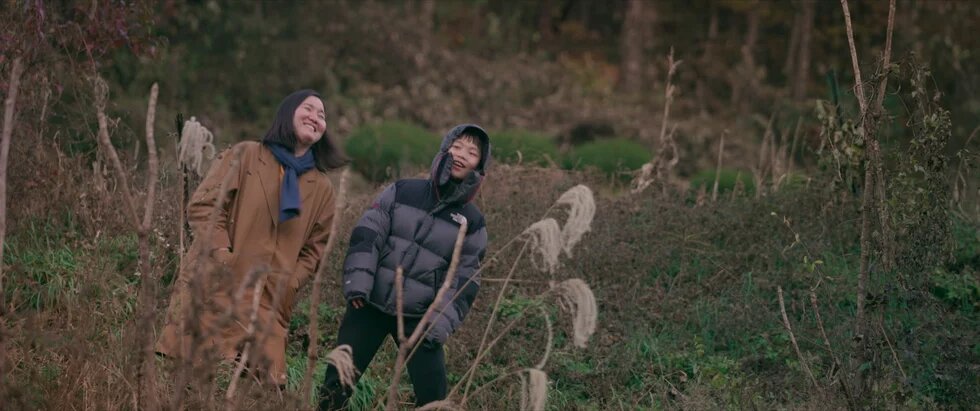
"You don't have to call me uncle or aunt. Just call me Eddie."
Undergoing gender transition, Edhi tells their nieces and nephews—confused about how to call him/her—not to worry about labels, but simply to say “Eddie.” This request, to be called not by a gendered title but by its own name, gestures beyond the binary of male and female. It is a quiet yet profound assertion of selfhood, and a tender attempt to reconstruct identity through the intimate bonds of family.
The documentary 'Edhi Alice: REVERSE' offers a candid portrayal of the autobiographical journeys of its two transgender protagonists, Edhi and Alice. Born in male bodies and undergoing medical and social transition to live as women, their stories are delivered with remarkable rawness, depth, and sensitivity—a reflection of the film’s four-year production process.
The film closely follows Edhi’s decision, made after nine years of reflection and preparation, to travel to Thailand for gender-affirming surgery. In the hospital waiting room, as Edhi lies on the bed before the procedure, silent tears fall from her expressionless eyes. Her mother’s seemingly indifferent yet deeply sincere question—“Are you sure you won’t regret this?”—and her father’s unyielding expression as he continues to refer to her as “son” after her transition, register as quiet, yet deeply penetrating forms of violence. These moments trace not just interpersonal conflict, but the existential pain of having one’s very being put on trial.
Meanwhile, Alice—both the film’s lighting technician and a co-protagonist—occupies a dual position: as someone who actively constructs her life, and as a figure constantly engaging and expanding the horizon of what it means to be made and to be making. As the camera follows Edhi's narrative, it occasionally drifts into behind-the-scenes glimpses, capturing Alice’s teasing jokes and the film set itself, turning the viewer’s gaze outward—beyond the frame. Through this layering, the audience is invited to shift fluidly between the lives being lived and the film being made, immersed in a complex sensory space where personal narrative and social reality intimately intersect.
“What is it that I really want?”
Confronting the confusion around her gender identity—and the harsh societal gaze that often accompanies it—Alice begins a journey of boldly affirming herself. It is through her encounter with the film 'Edhi Alice: REVERSE that she finally finds the courage to ask this question of desire. Stripped of the external gaze and social norms that have long shaped her self-perception, Alice stands before a question that reaches beyond survival and toward the essence of being. Her journey powerfully reminds us that identity is not merely a matter of acquiring a social label, but is deeply intertwined with the fundamental search for meaning in one’s life. And it quietly urges us to remember that this meaning is, inevitably, tied to the conditions of survival—something we too often forget.
'Edhi Alice: REVERSE' delves into these intimate layers of existence with a tenacity that is both unflinching and deeply humane.
Director Kim Ilran, best known for her documentary 'Two Doors', which chronicles the Yongsan tragedy, brings her characteristic rigor and unrelenting gaze to 'Edhi Alice: REVERSE'. Her approach refuses to reduce the lives of her subjects to mere “narratives.” Instead, she draws the audience close—into the rhythms of their pain and the subtle temperature of their emotions.
Eight years after her last film, 'The Remnants', Kim returns with 'Edhi Alice: REVERSE', a work that interweaves the personal stories of two transgender individuals with the broader cultural repression and everyday frictions that mark contemporary Korean society.
Having the opportunity to watch this film, screened as the closing work of the Korean Queer Film Festival, was a special privilege granted through the support of the Heinrich Böll Foundation’s East Asia Office, where I am based. Since early this year, the festival organizers had been steadily preparing the event by searching for suitable venues. However, the sudden cancellation of their originally scheduled venue created a crisis, leading voices calling for assistance to reach our office.
The Heinrich Böll Foundation, a self-proclaimed 'think-do tank' committed to realizing the values of equality and justice— in areas such as human rights, democracy, sexual minorities, and gender justice—has been supporting civil society in East Asia since opening its East Asia Office in Korea last year, working behind the scenes to advance human rights in the region.
Marking its 25th anniversary this year, the Korean Queer Film Festival itself stands as a testament to a sustained history of struggle.
The originally planned venue, Arthouse Momo located on Ewha Womans University campus, unilaterally canceled the reservation at the university’s demand, citing that screening a film “contrary to Christian values” was not permitted on campus. This incident exposes structural hatred deeply rooted in Korean society, beyond a mere administrative conflict.
Ironically, Arthouse Momo has screened Luca Guadagnino’s latest film 'Queer'—Guadagnino being well known in Korea for the queer narrative film 'Call Me By Your Name'—while simultaneously closing its doors to the Korean Queer Film Festival.
Criticism of this double standard by the venue’s management followed swiftly. Justin Kuritzkes, the screenwriter of 'Queer' screened at Arthouse Momo, released an official statement condemning the situation as “today it is tied up in an infuriating hypocrisy.” He emphasized, “Good movies simply reflect reality, and the reality is that queer people exist — and have existed — everywhere in the world since the beginning of human history” His statement powerfully recalls the significance of the existence portrayed in 'Edhi Alice:REVIERSE. [View full statement]
Fortunately, thanks to the cooperation of The Soop Art Cinema in Nowon, the festival was able to proceed smoothly and with care, preserving the painstaking preparation that went into it.
In the darkened theater, throughout the screening, soft sobs occasionally echoed from somewhere among the audience. These sounds felt less like mere empathy and more like a resonance triggered when the lives on screen deeply overlapped with someone’s present reality. Over the course of 140 minutes—where humor and sorrow, resignation and hope were exquisitely intertwined—each viewer quietly journeyed through the film in their own way. I too met each scene in step with the rhythm of those shared breaths of grief.
Edhi and Alice, as transgender individuals, are not merely the protagonists of a story; they are part of the reality living alongside us at this very moment. As long as society has yet to cultivate a space where they can be truly sensed, understood, and live without concealment, film remains an urgent medium for us. It serves as a safe window through which unseen existences can emerge, and a powerful public language enabling queer individuals to stand as their authentic selves within an often insufficient reality.
“It may be that I am but a small individual, yet I hope to lend my strength to this change.”
It has now been four and a half years since transgender soldier Byun Hee-soo, who spoke these words, passed away. In a military institution deeply rooted in rigid gender norms, she bravely revealed her true self. Countless sexual minorities quietly found hope in her courage, even as they watched her path forward with apprehension. Yet society ultimately failed to protect her. Byun, who truly loved her profession as a soldier, was never able to unfold the next chapter of her life as she deserved.Throughout the film, scenes of spliced and reconnected film strips are interwoven—seemingly symbolizing Edhi and Alice’s journey of writing new chapters beyond rupture and pain. This film not only offers courage for more Edhis and Alices in reality to continue telling their stories but also calls for a growing community of those who stand beside them and witness their lives. More than that, it aspires to become a space where mutual presence serves as a social shield, linking courage and expanding into a sense of solidarity that sustains us all.
Link to 'Korea Queer Film Festival' Homepage
Documentary Film 'Edhi & Alice: REVERSE' - Learn More
